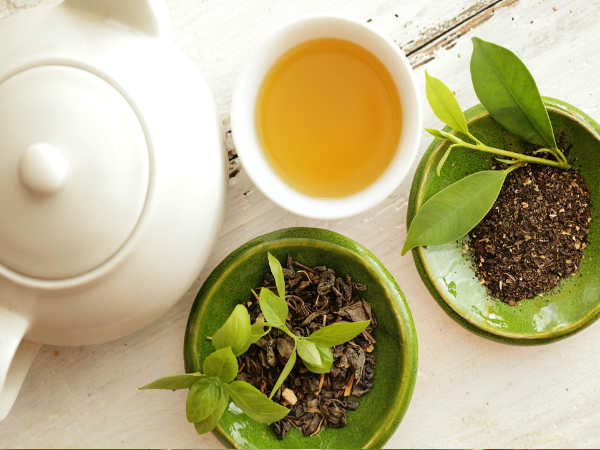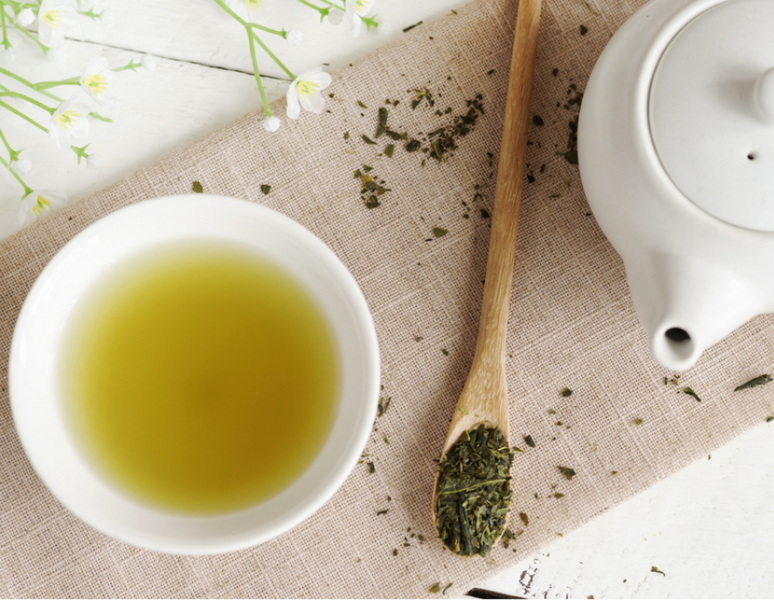Content Menu
● Understanding Green Tea Extract
● The Significance of 100 Mg
● Health Benefits of Green Tea Extract
>> Antioxidant Properties
>> Weight Management
>> Cardiovascular Health
>> Cognitive Function
>> Skin Health
● Is 100 Mg of Green Tea Extract Enough?
● Safety Considerations
>> Caffeine Content
>> Liver Concerns
>> Interactions
● Optimal Dosage Recommendations
● How to Choose a Green Tea Extract Supplement
● Incorporating Green Tea Extract into Your Routine
● Conclusion
● Frequently Asked Questions (FAQ)
>> 1. Can I take green tea extract instead of drinking green tea?
>> 2. Are there any side effects of taking green tea extract?
>> 3. How long does it take to see results from green tea extract?
>> 4. Can I take green tea extract if I'm pregnant or breastfeeding?
>> 5. How does green tea extract compare to other antioxidant supplements?
● Citations:
Green tea extract has gained significant popularity in recent years due to its potential health benefits. Many people are turning to green tea extract supplements as a convenient way to harness the power of this ancient beverage. However, when it comes to dosage, it's crucial to understand what constitutes an appropriate amount. In this article, we'll explore whether 100 mg of green tea extract is considered a lot and delve into the various aspects of green tea extract consumption.

Understanding Green Tea Extract
Green tea extract is a concentrated form of green tea, containing high levels of polyphenols, particularly catechins. The most abundant and well-studied catechin in green tea is epigallocatechin gallate (EGCG), which is believed to be responsible for many of the health benefits associated with green tea consumption[1].
The Significance of 100 Mg
To determine whether 100 mg of green tea extract is a lot, we need to consider several factors:
1. Standardization: Green tea extract supplements are often standardized to contain a specific percentage of catechins or EGCG. The concentration can vary widely between products, so 100 mg of one extract may not be equivalent to 100 mg of another[6].
2. Comparison to Brewed Green Tea: One cup of brewed green tea typically contains about 50-100 mg of EGCG[1]. Therefore, 100 mg of green tea extract could be roughly equivalent to 1-2 cups of green tea, depending on the extract's concentration.
3. Recommended Dosages: The recommended dosage of green tea extract varies depending on the intended use and the specific product. Generally, doses range from 250-500 mg per day[1].
4. Individual Factors: The appropriate dosage can depend on factors such as body weight, overall health, and sensitivity to caffeine and other compounds in green tea extract.
Health Benefits of Green Tea Extract
Green tea extract has been associated with numerous potential health benefits:
Antioxidant Properties
The catechins in green tea extract, particularly EGCG, are powerful antioxidants. They help protect cells from damage caused by free radicals, which may reduce the risk of various chronic diseases[1][2].
Weight Management
Some studies suggest that green tea extract may aid in weight loss and fat burning. The combination of catechins and caffeine in green tea extract may increase metabolism and fat oxidation[1][6].
Cardiovascular Health
Green tea extract has been shown to have potential benefits for heart health. It may help lower blood pressure, reduce LDL (bad) cholesterol levels, and improve blood flow[1][2].
Cognitive Function
Some research indicates that the compounds in green tea extract may have neuroprotective effects and could potentially improve cognitive function and reduce the risk of neurodegenerative diseases[1][2].
Skin Health
The antioxidant and anti-inflammatory properties of green tea extract may contribute to healthier skin. Some studies suggest it could help protect against UV damage and reduce signs of aging[6].

Is 100 Mg of Green Tea Extract Enough?
While 100 mg of green tea extract is not considered a large dose, it may still provide some benefits. However, the effectiveness of this dosage depends on several factors:
1. Extract Concentration: If the 100 mg dose is highly concentrated in EGCG, it may provide more benefits than a less concentrated extract.
2. Individual Goals: For general health maintenance, 100 mg might be sufficient. However, for specific health goals or therapeutic purposes, higher doses may be necessary.
3. Frequency of Use: Taking 100 mg multiple times per day could increase the overall intake and potential benefits.
4. Combination with Diet: If you're also consuming green tea or other sources of catechins in your diet, 100 mg of extract could complement your overall intake.
Safety Considerations
While green tea extract is generally considered safe for most people, it's essential to be aware of potential risks and side effects:
Caffeine Content
Green tea extract contains caffeine, which can cause side effects such as insomnia, nervousness, and increased heart rate in sensitive individuals[9].
Liver Concerns
High doses of green tea extract have been associated with rare cases of liver damage. It's recommended to take green tea extract with food and not on an empty stomach to reduce this risk[1][4].
Interactions
Green tea extract can interact with certain medications, including blood thinners and some antibiotics. It's important to consult with a healthcare professional before starting any new supplement regimen[9].
Optimal Dosage Recommendations
Based on current research, the following dosage recommendations can be considered:
1. General Health: 250-500 mg of green tea extract per day, standardized to contain 50-60% catechins and 30-40% EGCG[1].
2. Weight Management: 400-500 mg of EGCG equivalent per day[1].
3. Cardiovascular Health: 160-2,488 mg of green tea catechins or extract per day, often in divided doses[7].
4. Cognitive Function: Two 430 mg capsules (containing 360 mg green tea extract and 60 mg L-theanine) twice daily[7].
It's important to note that these recommendations are general guidelines, and individual needs may vary. Always start with a lower dose and gradually increase if needed, under the guidance of a healthcare professional.
How to Choose a Green Tea Extract Supplement
When selecting a green tea extract supplement, consider the following factors:
1. Standardization: Look for products standardized to contain a specific percentage of catechins or EGCG.
2. Third-Party Testing: Choose supplements that have been tested by independent laboratories for purity and potency.
3. Dosage: Select a product that allows you to easily adjust your dosage as needed.
4. Additional Ingredients: Be aware of any additional ingredients in the supplement and their potential effects.
5. Form: Green tea extract is available in various forms, including capsules, tablets, and liquid extracts. Choose the form that best suits your preferences and lifestyle.
Incorporating Green Tea Extract into Your Routine
If you decide to use green tea extract, here are some tips for incorporating it into your daily routine:
1. Start Low: Begin with a lower dose and gradually increase if needed.
2. Take with Food: Consume green tea extract with meals to reduce the risk of liver-related side effects.
3. Monitor Caffeine Intake: Be mindful of your total caffeine intake from all sources, including green tea extract.
4. Stay Hydrated: Drink plenty of water throughout the day when taking green tea extract.
5. Be Consistent: For optimal benefits, take green tea extract regularly as part of a healthy lifestyle.
Conclusion
While 100 mg of green tea extract is not considered a large dose, it may still offer some health benefits. However, the optimal dosage depends on various factors, including the extract's concentration, individual health goals, and overall diet. For most people, a daily dose of 250-500 mg of green tea extract is considered safe and potentially beneficial. As with any supplement, it's crucial to consult with a healthcare professional before adding green tea extract to your regimen, especially if you have pre-existing health conditions or are taking medications.
Remember that green tea extract should be viewed as a complement to a healthy lifestyle, not a substitute for a balanced diet and regular exercise. By understanding the potential benefits and risks associated with green tea extract, you can make an informed decision about whether and how to incorporate it into your wellness routine.

Frequently Asked Questions (FAQ)
1. Can I take green tea extract instead of drinking green tea?
Green tea extract can be a convenient alternative to drinking multiple cups of green tea daily. However, whole green tea contains additional beneficial compounds that may not be present in the extract. If possible, it's best to incorporate both forms into your diet for maximum benefits.
2. Are there any side effects of taking green tea extract?
While generally safe, some people may experience side effects such as headaches, sleep problems, or digestive issues due to the caffeine content. In rare cases, high doses of green tea extract have been associated with liver problems. Always follow recommended dosages and consult a healthcare professional if you experience any adverse effects.
3. How long does it take to see results from green tea extract?
The time it takes to see results can vary depending on the specific health benefit you're looking for and individual factors. Some effects, like increased energy, may be noticeable within hours, while others, such as weight loss or improved cardiovascular health, may take weeks or months of consistent use.
4. Can I take green tea extract if I'm pregnant or breastfeeding?
Pregnant and breastfeeding women should exercise caution with green tea extract due to its caffeine content and potential effects on folic acid absorption. It's best to consult with a healthcare provider before using green tea extract during pregnancy or while breastfeeding.
5. How does green tea extract compare to other antioxidant supplements?
Green tea extract is known for its high concentration of catechins, particularly EGCG, which are potent antioxidants. While it's an excellent source of antioxidants, it's best to obtain antioxidants from a variety of sources, including fruits, vegetables, and other plant-based foods, for a well-rounded approach to health.
Citations:
[1] https://www.healthline.com/nutrition/10-benefits-of-green-tea-extract
[2] https://pmc.ncbi.nlm.nih.gov/articles/PMC6412948/
[3] https://examine.com/supplements/green-tea-extract/
[4] https://www.canada.ca/en/health-canada/services/food-nutrition/public-involvement-partnerships/notice-modification-list-permitted-supplemental-ingredients-permit-use-green-tea-extract-supplemental-ingredient-foods/document.html
[5] https://www.medicalnewstoday.com/articles/269538
[6] https://wholehealth.com/vitamins-supplements-green-tea-extract/
[7] https://www.drugs.com/npp/green-tea.html
[8] https://health.clevelandclinic.org/green-tea-extract-a-better-way-to-boost-energy-or-not
[9] https://www.webmd.com/vitamins/ai/ingredientmono-960/green-tea






























